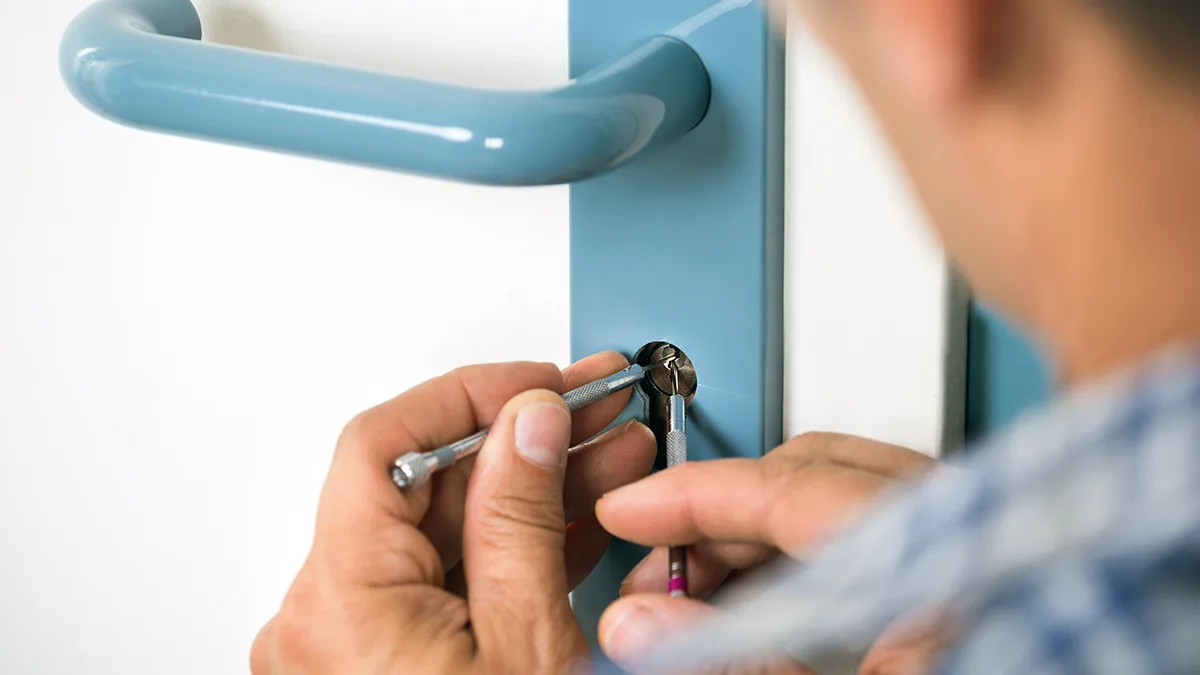The Hidden Costs of DIY Lock Repairs and How to Avoid Them. In a bustling city…
The Evolution of Locks: From Keys to Keypads
The Evolution of Locks: From Keys to Keypads. The world of security has undergone significant transformations throughout history, particularly in the realm of locks.
From the ancient mechanisms crafted by skilled locksmiths to the sophisticated keyless entry systems of today, the evolution of locks has been marked by innovation, technology, and an increasing emphasis on security.
This article delves into the journey of locks, highlighting their development over the years, with a particular focus on the London locksmith industry and the anticipated advancements by 2025.
The Historical Context of Locks
The history of locks can be traced back to ancient civilisations.
The earliest known lock was discovered in the ruins of Nineveh, the capital of the Assyrian Empire, dating back to around 4000 BC.
This rudimentary wooden lock operated using a bolt mechanism, which could be secured with a wooden key.
As societies evolved, so did the complexity of locks, reflecting the growing need for security in increasingly populated and structured communities.
As the Middle Ages approached, locksmithing emerged as a respected trade.
Skilled locksmiths in London and across Europe began to craft ornate locks that not only provided security but also served as symbols of wealth and status.
These locks featured elaborate designs and were often accompanied by beautifully crafted keys, showcasing the artistry of the locksmith’s craft.
The Industrial Revolution: A Turning Point
The Industrial Revolution marked a pivotal moment in the evolution of locks.
With advancements in manufacturing processes, locks became more accessible to the general public.
The introduction of mass production techniques allowed locksmiths to create locks that were both affordable and reliable.
Notable locksmiths, such as Joseph Bramah, introduced innovative designs that revolutionised security.
The Bramah lock, patented in 1784, featured a unique design that was nearly impossible to pick, setting a new standard for security.
This innovation not only elevated the locksmith profession but also laid the foundation for future advancements in lock technology.
The 20th Century: The Rise of Key-Based Systems
As the 20th century unfolded, the evolution of locks continued to progress. The introduction of the combination lock and the cylinder lock represented significant advancements in security.
These locks offered users the convenience of keyless entry, while still providing robust protection against unauthorised access.
In London, the locksmith industry adapted to the changing landscape. With the rise of automobiles and the need for secure storage, locksmiths began to specialise in automotive locks and security systems.
The latter half of the 20th century saw the introduction of electronic locks, which began to replace traditional key-based systems.
These locks utilised electronic components to enhance security and convenience. Keycards, fobs, and biometric systems emerged, allowing users to unlock doors with a simple swipe or touch.
This shift marked the beginning of a new era in lock technology, as security became increasingly intertwined with electronics.
The Digital Age: Keypads and Beyond
Entering the 21st century, the evolution of locks took a dramatic turn with the advent of smart technology. Keypads and smart locks became prevalent, allowing users to unlock their doors using codes or mobile applications.
This shift not only enhanced security but also provided users with greater control over their access points.
In London, the rise of smart locks has transformed the locksmith industry.
Modern locksmiths are now required to possess a diverse skill set that includes knowledge of electronic systems and cybersecurity.
As smart locks became more popular, locksmiths adapted their services to include installation, maintenance, and troubleshooting of these advanced systems.
Additionally, many smart locks offer features such as remote access and activity monitoring, providing users with peace of mind and enhanced security.
The Future of Locks: What to Expect by 2025
As we look towards 2025, the evolution of locks is poised to continue at an accelerated pace.
Several trends are emerging that will shape the future of security and locksmithing.
1. Integration with Smart Home Technology
The integration of locks with smart home systems will become increasingly prevalent.
Homeowners will expect seamless connectivity between their locks and other smart devices, such as security cameras, alarms, and home automation systems.
This interconnectedness will allow for enhanced security measures and greater control over access points within the home.
2. Biometric Security
Biometric locks, which utilise fingerprint recognition or facial recognition technology, are expected to gain traction by 2025.
These locks offer a high level of security, as they rely on unique biological traits that are difficult to replicate.
As the technology becomes more affordable, we can anticipate widespread adoption in both residential and commercial settings.
3. Enhanced Cybersecurity Measures
As locks become more connected, the importance of cybersecurity will become paramount.
Locksmiths will need to stay informed about potential vulnerabilities in smart locks and implement measures to protect against hacking and unauthorised access.
This will require ongoing training and education within the locksmith industry.
4. Sustainable Lock Solutions
With increasing awareness of environmental issues, there will be a growing demand for sustainable lock solutions.
Manufacturers will likely explore eco-friendly materials and energy-efficient designs, catering to environmentally conscious consumers.
5. Customisation and Personalisation
The future of locks will also see a trend towards customisation and personalisation.
Consumers will seek locks that reflect their individual style and preferences, leading to a rise in bespoke lock designs.
This shift will create new opportunities for locksmiths to offer tailored solutions that meet the unique needs of their clients.
The evolution of locks has been a fascinating journey, reflecting the changing needs and technological advancements of society.
In London, locksmiths will play a crucial role in navigating this evolving landscape, ensuring that both residential and commercial properties remain secure in an increasingly connected world.
As technology continues to advance, the locksmith industry will undoubtedly rise to the challenge, embracing new methods and tools to protect what matters most.
The evolution of locks is far from over, and the next chapter promises to be as transformative as the last.




Comments (0)